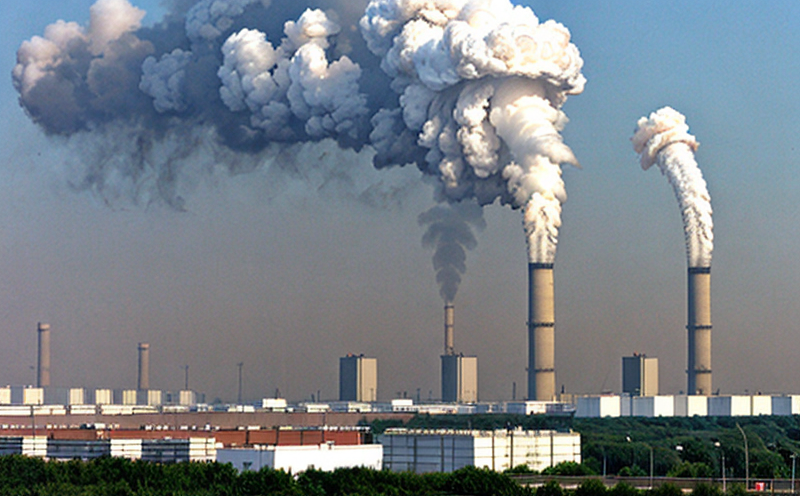Air and Noise Pollution Studies: A Comprehensive Analysis
The growing concern of air and noise pollution has become a pressing issue globally, affecting millions of people worldwide. Air and noise pollution are two interrelated environmental pollutants that can have detrimental effects on human health, the environment, and the economy. In this article, we will delve into the causes, effects, and consequences of air and noise pollution, highlighting the importance of conducting thorough studies to mitigate their impacts.
Causes of Air Pollution
Air pollution is caused by the release of pollutants into the atmosphere through various human activities, including:
Burning fossil fuels for energy and transportation
Industrial processes such as manufacturing and mining
Agricultural practices like fertilization and pesticide use
Waste management practices such as landfilling and incineration
Effects of Air Pollution
Air pollution can have severe effects on human health, the environment, and the economy. Some of the key effects include:
Respiratory problems such as asthma and chronic obstructive pulmonary disease (COPD)
Cardiovascular diseases like heart attacks and strokes
Neurological disorders such as Alzheimers disease and Parkinsons disease
Cancer development in various forms
Climate change through greenhouse gas emissions
Causes of Noise Pollution
Noise pollution is caused by the introduction of excessive, unwanted sound into the environment. Some common sources of noise pollution include:
Traffic congestion and construction activities
Industrial processes like manufacturing and mining
Aircraft and vehicle traffic
Leisure activities such as concerts and sporting events
Effects of Noise Pollution
Noise pollution can have significant effects on human health, the environment, and the economy. Some key effects include:
Hearing loss and tinnitus (ringing in the ears)
Sleep disturbances and decreased productivity
Increased stress levels and anxiety
Negative impacts on wildlife populations and ecosystems
Decreased property values and economic growth
Detailed Analysis of Air Pollution Effects
The following are some key details about air pollution effects:
Respiratory Problems: Exposure to particulate matter (PM) and nitrogen dioxide (NO2) can exacerbate respiratory problems such as asthma and COPD. Long-term exposure to ozone (O3) and PM can also lead to lung cancer.
Cardiovascular Diseases: Air pollutants like PM, NO2, and O3 can increase cardiovascular disease risk by damaging blood vessels and increasing inflammation.
Detailed Analysis of Noise Pollution Effects
The following are some key details about noise pollution effects:
Hearing Loss: Prolonged exposure to high levels of noise (85 decibels or higher) can cause permanent hearing loss. Repeated exposure to lower levels of noise (75-85 decibels) can also contribute to hearing loss over time.
Sleep Disturbances: Noise pollution can disrupt sleep patterns, leading to fatigue, decreased productivity, and increased risk of chronic diseases.
QA Section
Here are some frequently asked questions about air and noise pollution:
Air Pollution:
1. What is the main cause of air pollution?
The main causes of air pollution include burning fossil fuels for energy and transportation, industrial processes, agricultural practices, and waste management practices.
2. How does air pollution affect human health?
Air pollution can lead to respiratory problems such as asthma and COPD, cardiovascular diseases like heart attacks and strokes, neurological disorders, cancer development, and climate change.
3. What are some ways to reduce air pollution?
Strategies for reducing air pollution include increasing energy efficiency, transitioning to renewable energy sources, implementing sustainable land use practices, and improving waste management.
Noise Pollution:
1. What is the main cause of noise pollution?
The main causes of noise pollution include traffic congestion and construction activities, industrial processes, aircraft and vehicle traffic, and leisure activities.
2. How does noise pollution affect human health?
Noise pollution can lead to hearing loss and tinnitus (ringing in the ears), sleep disturbances and decreased productivity, increased stress levels and anxiety, negative impacts on wildlife populations and ecosystems, and decreased property values and economic growth.
3. What are some ways to reduce noise pollution?
Strategies for reducing noise pollution include implementing traffic calming measures, enforcing noise regulations, using sound-absorbing materials in construction, and promoting quiet recreation activities.
Conclusion
Air and noise pollution pose significant threats to human health, the environment, and the economy. Conducting thorough studies on these pollutants can help identify effective mitigation strategies and inform policy decisions. By understanding the causes, effects, and consequences of air and noise pollution, we can work towards creating a cleaner, healthier, and more sustainable future for all.

































